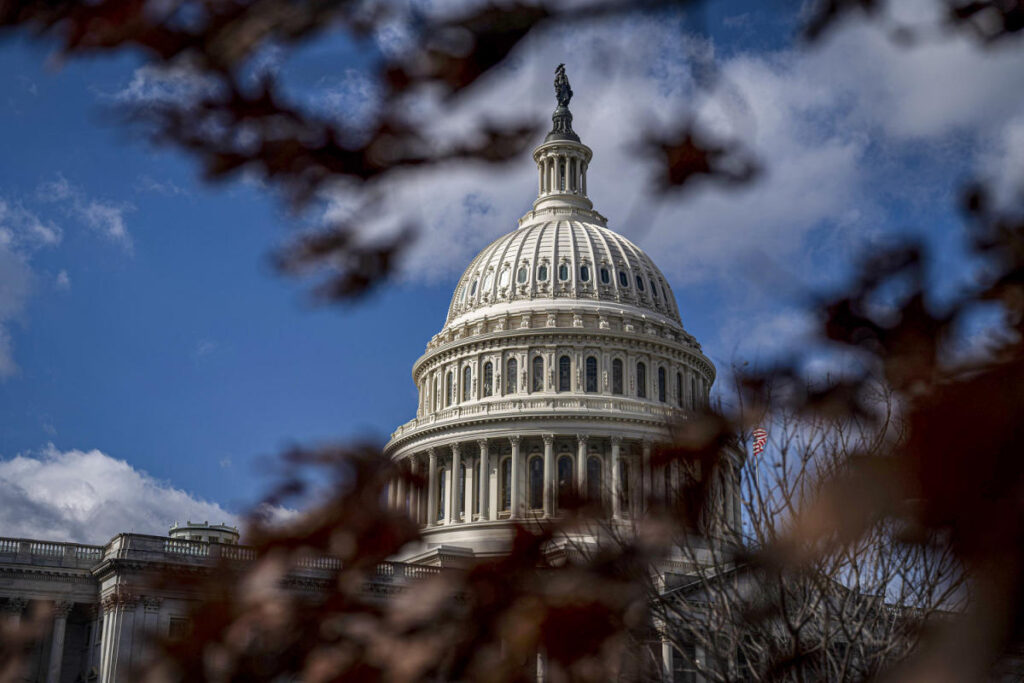As voters prepare to cast their ballots in the upcoming elections, they not only choose their government representatives but also determine the balance of power in Congress. The stakes are high, as the entire House of Representatives and a third of the Senate are up for grabs, shaping the future direction of vital policies. The successful party will be instrumental in managing essential issues that are either currently on the agenda or looming on the horizon, including significant tax cuts, health care provisions, and fiscal responsibilities such as funding the government and extending the debt ceiling. The outcomes of these elections will directly influence how these matters unfold, particularly with figures like former President Donald Trump and Vice President Kamala Harris poised to set their respective agendas.
One of the critical issues confronting the new Congress will be the impending expiration of major tax cuts instituted under Trump’s 2017 Tax Cuts and Jobs Act by late 2025. This tax plan currently provides $3.3 trillion in benefits, and the question of extension hangs in the balance of the election results. Should the provisions lapse, taxpayers will experience significant adverse changes, including halved standard deductions and increased rates for high earners. Trump has expressed a desire to continue tax breaks for all income levels, while Democratic leaders favor maintaining cuts only for individuals earning less than $400,000 annually and eliminating those for wealthy Americans. Additionally, the future of the state and local tax deduction (SALT) remains contentious, particularly for residents in higher-tax states, with ongoing debates about its cap potentially returning to unlimited levels post-expiration.
Another pressing issue for Congress is the potential loss of funding for health care subsidies under the Affordable Care Act (ACA), particularly affecting those who rely on the subsidized insurance exchanges. The funding, which supports tax credits ensuring premium costs don’t exceed 8.5% of income, will end by the conclusion of 2025 if not renewed. This funding has significant implications, with estimates suggesting a $25 billion annual cost to maintain it. While President Harris is calling for a continued commitment to the ACA, Trump’s prior stance has largely favored dismantling the healthcare law, making negotiations on this front pivotal for whichever party gains control.
Furthermore, the looming issue of the debt ceiling presents another significant challenge for the incoming Congress. The government is projected to hit its borrowing limit by January 1, 2025, leading to the implementation of “extraordinary measures” to manage financial obligations temporarily. The debt ceiling mechanism, which requires Congressional approval for borrowing that has already been authorized, has resulted in previous intense confrontations between parties. The upcoming elections could once again ignite conflict over budgetary policies, particularly if conservative factions leverage the debt ceiling to demand spending cuts and other policy changes, raising concerns about a possible government default.
Additionally, the federal government’s funding machinations are set to create further political drama. With government funding set to expire on December 20, 2024, the lame duck Congress must decide whether to extend funding measures or confront new budget legislation in early 2025. The requirement for a 60-vote threshold in the Senate typically necessitates bipartisan cooperation. However, the incentives and negotiating power can dramatically shift depending on which party retains influence and the internal dynamics within Congress. The pressure for hard-right factions to enact specific spending policies could lead to a contentious political landscape as they may threaten government shutdowns should their demands not be met.
Compounding these funding issues is the need to address the farm bill, a critical piece of legislation that regulates agricultural and food policies. The current bill has lapsed since its expiration in 2023 and is currently being administered in a temporary format. The next Congress will face the intricate task of negotiating long-term decisions related to farming subsidies, food assistance programs, and related matters. A divided government may necessitate compromise, with both parties needing to collaborate on priorities, whereas a unified government could allow for a stronger unilateral direction in policy-making.
Ultimately, the outcomes of the elections will set the stage for key legislative battles and policy decision-making in Congress. As the respective parties prepare to navigate these pressing challenges, their approaches to tax, health care, debt, government funding, and agricultural policies will dramatically impact the nation’s economic and social landscape. Voter decisions will not only influence immediate governance but could also have lasting effects on the political trajectory of the country for years to come as Congress contends with myriad legislative priorities following the election.

